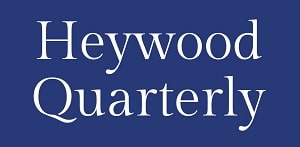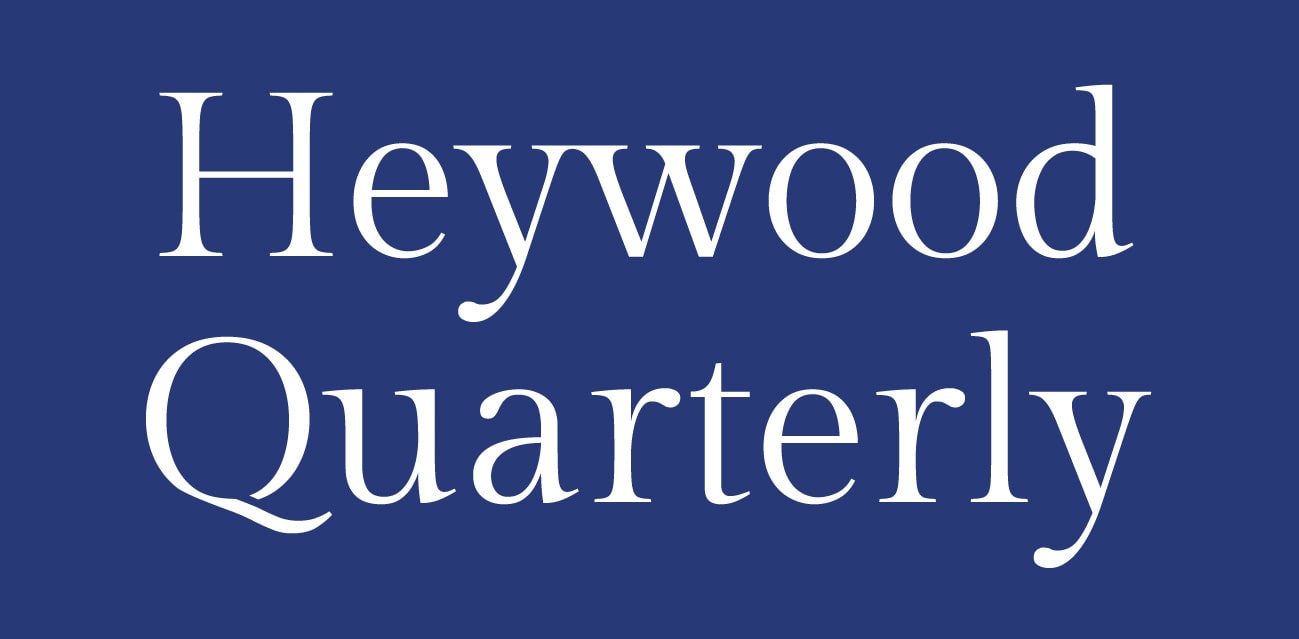Many seasoned Civil Servants – and older readers far beyond the confines of government – will instinctively appreciate why this new publication bears the name of Jeremy Heywood. But given it is now six years since his untimely death, it is best to start by explicitly reminding younger generations about Jeremy’s distinctive contribution to public life.
As a Senior Civil Servant under five Prime Ministers; Cabinet Secretary to David Cameron and Theresa May from 2012 to 2018; and head of the Civil Service from 2014 to 2018, Jeremy enjoyed a rare reputation for problem-solving. He displayed a restlessness in pursuit of new ideas, showed a commitment to diversity in the public sector before it was fashionable, and pursued an unwavering dedication to the provision of high quality and impartial ministerial advice. In his lifetime, he was a role model for those he worked with, and for those he served. That legacy remains.
The Heywood Quarterly, the brainchild of his widow Suzanne and the board of the Heywood Foundation, will seek to champion many of the things Jeremy cared about, notably the encouragement of innovation in the public sector. We will aim to pass on the wisdom and advice of senior leaders in the Civil Service, while highlighting the ideas, energy and aspirations of those working at more junior levels of government. And in time we will bring in perspectives from outside the rarefied environs of Whitehall, the regions and the devolved administrations, notably from experts in other sectors of the economy, and in other countries too.
We will consciously build on the heritage of the old Civil Service Quarterly, a publication that Jeremy himself started in 2013 and which appeared in over 22 editions up to the beginning of 2020. It ceased production when other matters inevitably took priority in the wake of Covid.
I hope you’ll agree the distinguished contributors to this first edition of the Heywood Quarterly have set a high bar for those that follow, and we are particularly heartened by the encouragement of Simon Case, today’s Cabinet Secretary and Head of the Civil Service. “We must be better at telling our stories of public service – listening and learning from each other and from the wider community”, he writes on the next page. “A publication which drives that discussion is extremely valuable as we face the challenges ahead”.
The Heywood Quarterly will aim to do just that and provide a ‘safe space’ where, within the bounds of honesty, integrity and objectivity, Civil Servants will feel free to pass on lessons to their peers.
Jeremy Heywood’s own view of what makes an exemplary Civil Servant has never been published before, which is why Suzanne’s opening essay on pages 8-11 makes for compelling reading. Its list of attributes (each illustrated with an anecdote or quote) will no doubt be pinned to many desks, and we will explore them more in future editions. Her article is especially pertinent at this time, as Civil Servants adjust to a new government, new personalities and new ways of working, while seeking to maintain the highest standards of delivery.
Tamara Finkelstein is not only Permanent Secretary at the Department for Environment, Food and Rural Affairs, she’s also Head of the Government Policy Profession. An engineer and economist by training, Tamara describes her personal journey to becoming a Civil Service generalist, an experience which has shaped her conviction that generalists need to be redefined, and generalist skills respected like any others, nurtured and developed through a programme of accreditation and lifelong learning. She sets out the Profession’s future plans on pages 14-17.
Have you ever wondered about the life and daily routine of a top diplomat? The Heywood Quarterly intends to highlight interesting and important public service roles through a regular ‘Day in the life of…’ series, the first episode here focusing on Neerav Patel, Britain’s Ambassador to Qatar. Neerav’s life, as you’ll discover on pages 18-23, is not just about meetings with Qatari officials and visiting trade delegations – his article provides colourful glimpses of visits to a Book Fair and local weddings, as well as the story of how a senior western general once shared a hotel lift with the Taliban defence minister.
Arguably one of the most exciting and politically charged topics across governments in the UK — and indeed in governments across the world – is the likely impact of artificial intelligence. Who better to describe the challenges of AI, therefore, than Laura Gilbert, a former tech entrepreneur and Director of Data Science at 10 Downing Street. Her article (pages 24-29), which openly acknowledges false starts, cultural teething problems and the importance of gaining public trust, outlines an inspiring vision of how we can improve public services.
Among many themes on our agenda – the lessons of history, relations between government and business, and cross-departmental initiatives to name but a few – we want to keep a regular focus on devolution, and notably on some of the exciting policy ‘experiments’ taking place away from Whitehall. In this edition we’re delighted to kick off with the reflections of Peter McDonald, Director of Transport and Digital Connectivity in the Welsh Government, who moved from London to Cardiff seven years ago and is thus in the ideal position to compare experiences of working at a senior level in both central and devolved governments. Peter concludes by urging other Civil Servants to consider copying what he calls his own ‘natural experiment’.
Finally, in this issue you can read an edited version of the Heywood Quarterly’s 2024 Election series, four articles published online in June offering insights into the election process, the responsibilities of Civil Servants during the transition to a new government, what is being done to combat the threats of cyber attack and disinformation, and the (sometimes surprising) constitutional role of the Monarch. Much of this remains just as timely after 4th July as it was before.
As a start-up publication, the Heywood Quarterly is immensely grateful for the support of our two early sponsors, the Heywood Foundation and the Blavatnik School of Government, University of Oxford. We are run by a very small team, led by an independent Editor and supported by an Editorial Board comprising a majority of non-Civil Servants. Please get in touch if you want to provide feedback on our efforts so far, if you or your organisation would like to support us, or if you want to submit an article for a future edition.(submissions@heywoodquarterly.com).
Tim Dickson, Editor in Chief.





